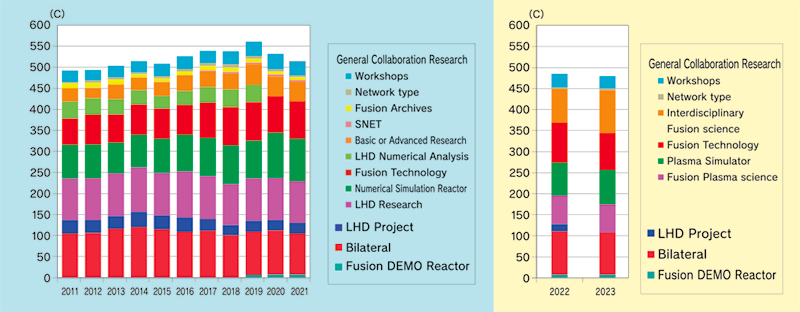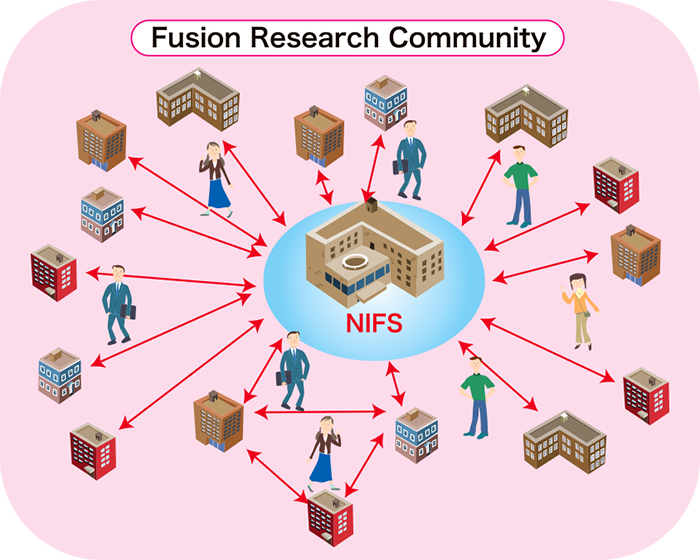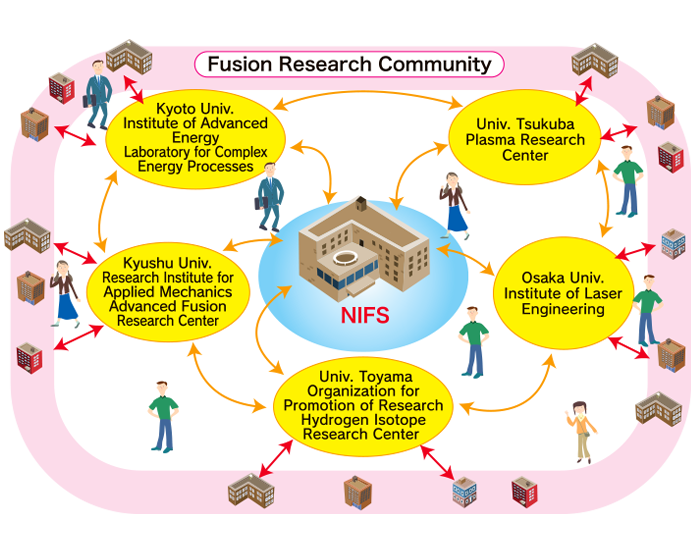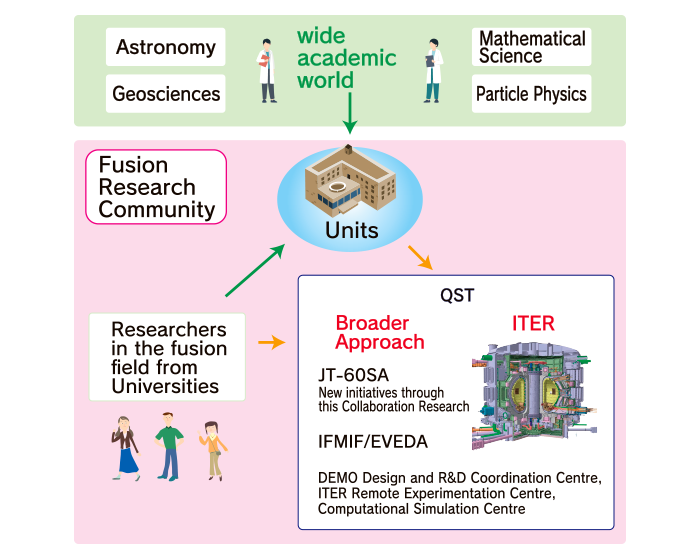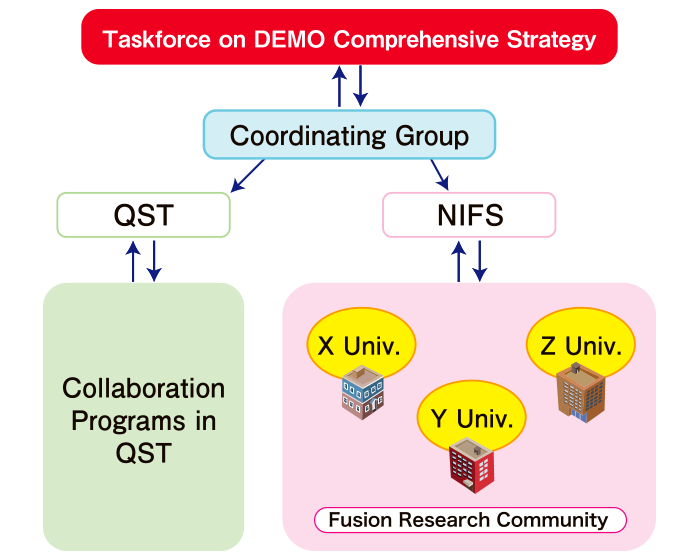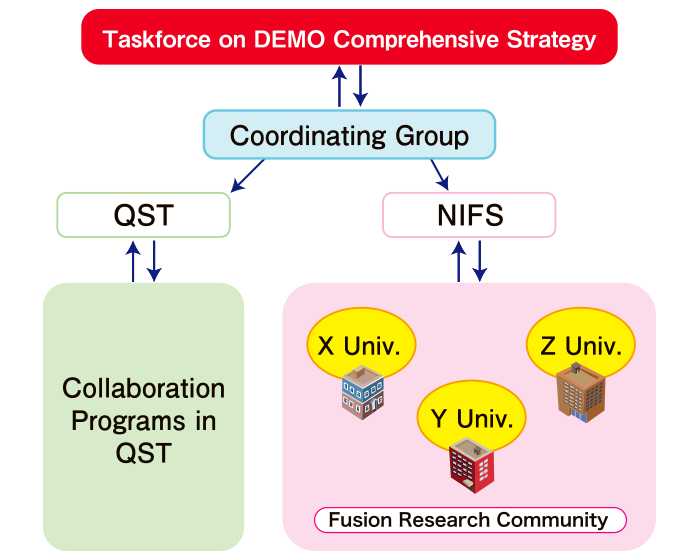Collaborative Research
The application should be submitted Online. Please submit the application after registering your researcher information through NOUS(https://nous.nins.jp/user/newuser). In completing and submitting the application form, please consult with your contact person in NIFS.
Guidelines and Forms for Collaborative Research Applications
- Collaborative Research Application Guidelines 【Japanese】
- Apply via NOUS (NINS Open Use System)
- Download Various Application Forms【Japanese】
For your visit to NIFS:
Contact Persons
NIFS Research Support Division Research Support Section
322-6 Oroshi-cho, Toki City, GIFU Prefecture
509-5292 Japan
Tel. +81-572-58-2044
E-mail: 

